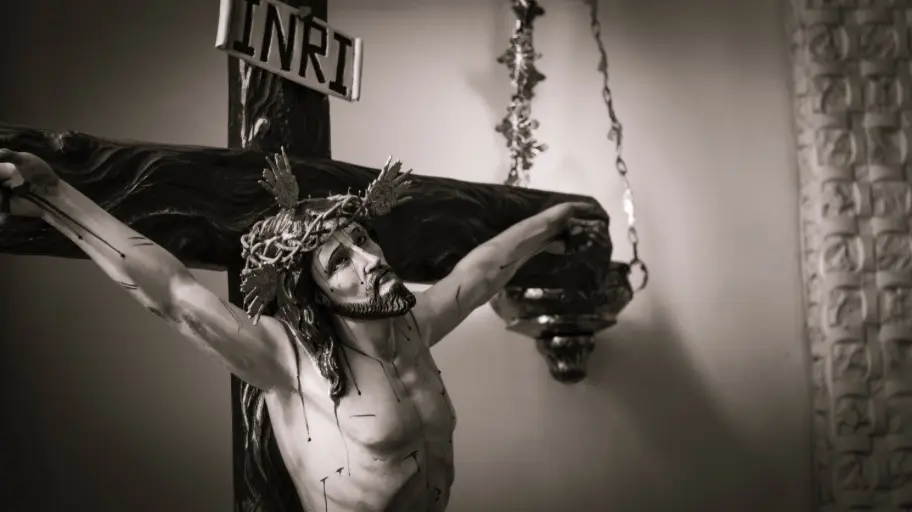My dear friends, today is the feast of Our Lord Jesus Christ, the Eternal High Priest. This feast is proper to England and Wales, and is celebrated on Thursday after Pentecost. In other countries, the liturgical celebration might be Thursday of the 7th week of Ordinary Time of the Year. The Gospel of this feast is all about the Passover meal of Jesus with his disciples.
In this context of the meal of the Last Supper, Jesus instituted the Eucharist and the priesthood. He instructed his disciples to keep the celebration in memory of him. This is what we do at Mass every day in obedience to his command, and the celebration is immensely tremendous and spiritually enriching. It is, therefore, proper on this day we celebrate the feast of Jesus Christ, the Eternal High Priest, to reflect on the Eucharist.
The Institution of the Sacraments at the Last Supper
At the Last Supper, a pivotal moment in our faith, Jesus used two essential elements of the Eucharist, ‘bread and wine,’ and instituted the Sacrament of his Body and Blood in giving thanks. He then ordered his disciples to continue this celebration in memory of him. This act established the Eucharist and the ministerial priesthood, with Jesus as the Eternal High Priest of the Order of Melchizedek. He empowered his disciples and successors to dutifully discharge this solemn duty amidst brethren.

According to the gospel of Mark, Jesus first took some bread while he was at table with his disciples and offered thanks. He broke the bread and blessed it, saying: ‘Take it,’ he said, ‘this is my body’ (Mark 14:23). Then he took the cup, offered thanks again and gave it to them, saying: ‘This is my blood, the blood of the covenant, which is to be poured out for many’ (Mak 14:24). These very words of Christ form the solemn words of consecration at Mass. When said by the priest, they bring about the ontological change of the bread and wine into the Body and Blood of Christ by the power of the Holy Spirit. This is the mystery of the Eucharist, the source and summit of all the Church does.
After the words of consecration, the Church teaches that “the bread is no longer bread but the Body of Christ, and the wine is no longer wine, but the Blood of Christ. As such, anyone who receives the Sacred Specie receives the Most Precious Body, Blood, Soul, and Divinity of Christ under the appearances of bread and wine.”
The Reception of Holy Communion
The reception of Holy Communion is the receiving of Jesus in the Holy Eucharist, and it is a privilege that requires certain qualifications. The Catechism of the Church states: ‘to receive Holy Communion, one must be fully incorporated into the Catholic Church and be in the state of grace, that is, not conscious of being in mortal sin. Anyone conscious of having committed a grave sin must first receive the Sacrament of Reconciliation before going to Communion’ (cf. CCC1384-1385). In other words, a baptised catholic can exclude oneself from the reception of Communion if they are not in a state of grace.
The guidance of reception of Holy Communion needs to be respectfully observed by everyone, to avoid being guilty of profaning the Body and Blood of Christ. No wonder St Paul calls for proper examination of conscience so as not to receive Communion in an unworthy manner. Hence, he says: ‘Anyone who eats and drinks without discerning the body eats and drinks judgment unto themself. Anyone conscious of a grave sin must receive the sacrament of reconciliation before coming to Communion (cf. CCC 1384-1385).
If one, therefore, is not in the state of grace at Mass to receive Communion, one should pray silently in his or her seat. One can also move up to the altar to receive a blessing from the priest instead of Holy Communion, which is obtainable in some countries. The reception of Holy Communion must be done with utmost respect, for Christ is truly present in the Eucharist. Holy things must be treated holily.
The Benefits of the Eucharist
The benefits of the sacrament of the Eucharist are enormous. It is the spiritual food for the nourishment of the soul. The Catechism of the Catholic Church puts it well when it says that the Eucharist is the “pledge of future glory because it fills us with every grace and heavenly blessing. It fortifies us for our pilgrimage in this life and makes us long for eternal life. It unites us all to Christ, the Blessed Virgin, and the saints.” And for St Ignatius of Antioch, “in the Eucharist, we break the one bread that provides the medicine of immortality, the antidote for death and the food that makes us live forever in Jesus Christ.” We must be ever grateful to Jesus for giving us Himself in the Eucharist. May he make us whole and save us as we receive him the Eucharist.
Peace be with you and Happy Feast of Our Lord Jesus Christ, the Eternal High Priest.
[Reading: Jas 5:1-6; Mk 9:41-50]
Read other related articles
